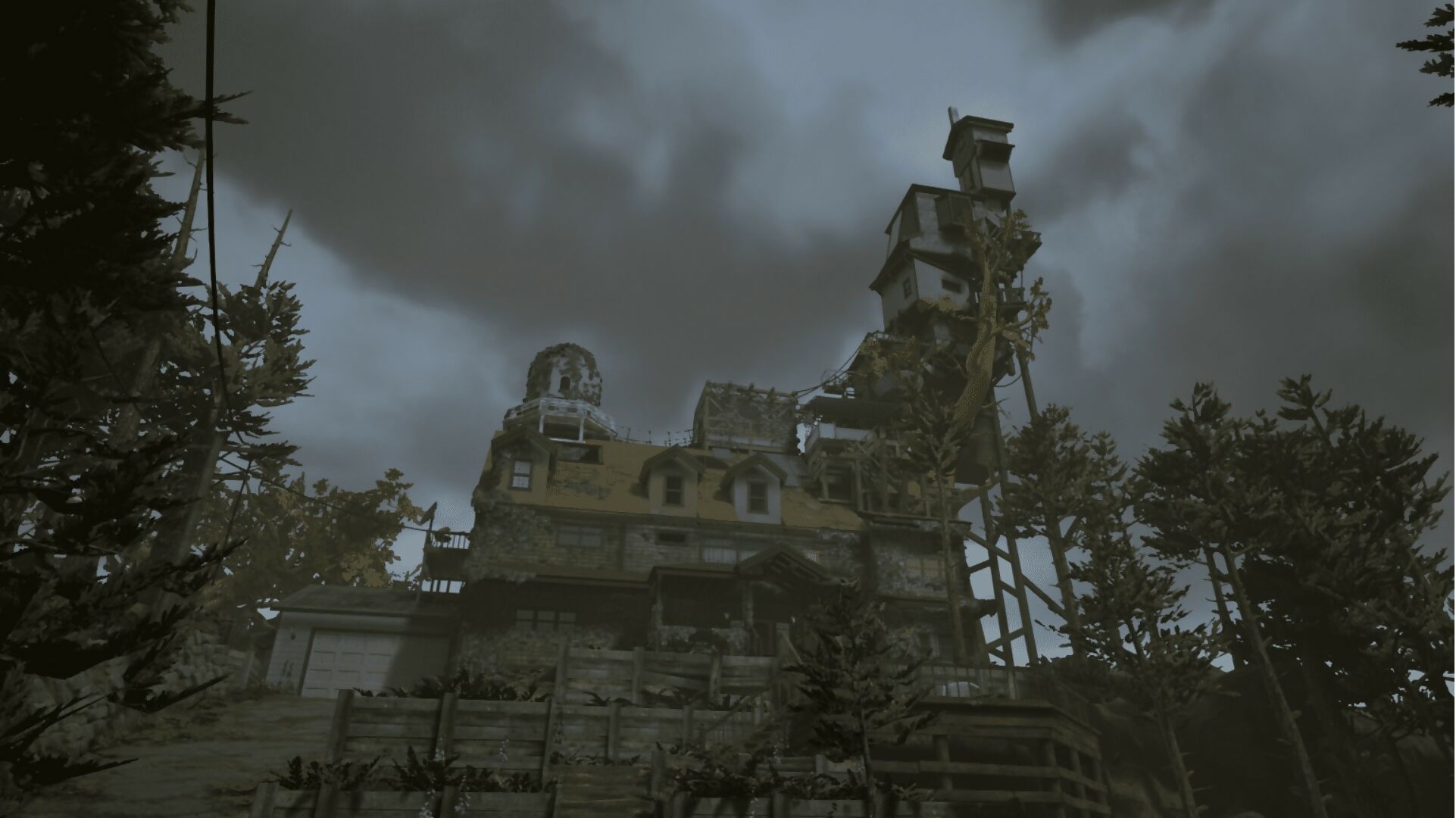
As a critic, there are certain games you’re supposed to have played. Many of the big names, of course, but also the celebrated small ones, the quirky boundary-pushers, and the arty award-winners. It’s almost embarrassing to admit you haven’t, but there’s always a few that slip through the net like, say, a salmon that should have wound up in an American fish cannery. These are games you often hear about, but somehow never reach the top of your in-tray, as a march of new releases sweeps you along. Yes, even some that are only two hours long. And on Game Pass. Fine, I have no excuse. But that was me and What Remains of Edith Finch.
What’s worse is that Edith Finch is one of those games that
everyone seems to love, and they’re absolutely right to. I really should have
got to it earlier, because Edith Finch is a work of immense beauty, an evolved
form of the ‘walking simulator’ that foregrounds the unique qualities of the
genre as it winds through an anthology of unfortunate deaths. Above all, it
needs to be experienced first hand. Surely that’s the secret to a good walking
sim – the interactivity may be slight, but it’s absolutely essential.
It’s telling that I don’t want to talk first about Edith
Finch’s writing or storytelling, but its control. I know some find it
gimmicky when games have us mime actions like turning handles or pulling doors
with shifts of a mouse or analogue stick, but I’ve always appreciated it. Yes,
you could just press a button, but it’s not the same. It’s good to feel
resistance in the hands, to put a little effort in. The properties of
objects really register, which sucks you deeper in, and that’s crucial here.

Edith Finch Bathtub
Tactility, weight, and spatial perception are the invisible machinery of Edith Finch. The early stages ease you into its mechanisms without ever telling you as much, giving you a few generic fittings to wind, press, or squeeze through until it’s second nature, always requiring just enough input to make you feel like you’re participating, but not so much that you can do it wrong. After that, your movements in a vast array of situations feel
instinctive, whether it’s everyday stuff like unlatching a gate or shifting
your weight on a swing, or less common activities like picking up a crutch and
instantly wielding it as a makeshift weapon, or being a tentacled monster.
Better still, it manages to be instinctive and odd at the
same time, thanks to its use of perspective and scale. Edith Finch is like
being Alice in Wonderland, where by turns you feel dwarfed by the teetering
Finch estate, then gigantic as you stoop into its secret passages, always
uncertain how the tone will shift, or who you’ll meet, and under what
circumstances. This is a disorienting submergence into magic realism, where
subtitles plaster themselves on surfaces to underline how the world is being
written into existence. You’re pulled through fractured fantasies at breakneck
speed, then ejected back outside to mull over what happened and get some fresh
air before round two. But I expected all that. I knew there would be leaps of
imagination, whimsy, and dark humour as I visited the rooms and played out the
fates of Edith’s relatives. I wasn’t prepared, however, to find some of it so
powerful.
I had to pause after the story of Gregory, the baby who
drowns in the bath. Not because it was such a terrible event, but because it’s
framed with such surprising artistry. I was dreading it because I could see it
coming – looking at the family tree Edith carries with her, I noted the
one-year difference between Gregory’s birth and death year – it cast a shadow
over the earlier episodes. But instead I was met with Gregory’s own experience
of purest playfulness and joy. Imagining his rubber ducks and wind-up frog
dancing to a symphony is total fulfilment for him, an unsullied love for a
perfectly theatrical world that even in the moment of demise couldn’t be
tarnished by fear or loss or emptiness or cynicism. I felt a swell of emotion
that was exactly that – not sadness nor happiness, just emotion.

Edith Finch cannery
Then there’s Lewis in that cannery, decapitating salmon
while daydreaming of life in a faraway kingdom, until his eventual suicide.
It’s scary how easy it is to keep the rhythm of salmon chopping – left, right,
up – running subconsciously while entertaining an unrelated fantasy (with the
brilliant touch that fish keep popping up in the dream). When labour can be so
mechanical and dehumanising, who can blame Lewis for escaping reality? I can’t
think of anything that captures the sense of being torn from yourself in menial
jobs so well, when you tell yourself that your life is what happens somewhere
else, while mind-numbing tasks eat away your days.
Of course, the point in Edith Finch is that despite all the
death, it’s a game about life. The Finch family might be cursed, or merely be
experts at exiting on their own terms, often pig-headedly doing what they love,
regardless of the consequences. Are they reckless, self-absorbed,
irresponsible? Perhaps. But none are tragic, except possibly Edith’s mother,
who spends her life running scared.
Tragedy isn’t dying, Edith Finch says, it’s not living. And
with that, I should learn to stop putting off playing powerful, genre-defining
games I’ve missed that I’ll almost certainly love. Now, if you’ll excuse me,
it’s time I booted up Disco Elysium.





